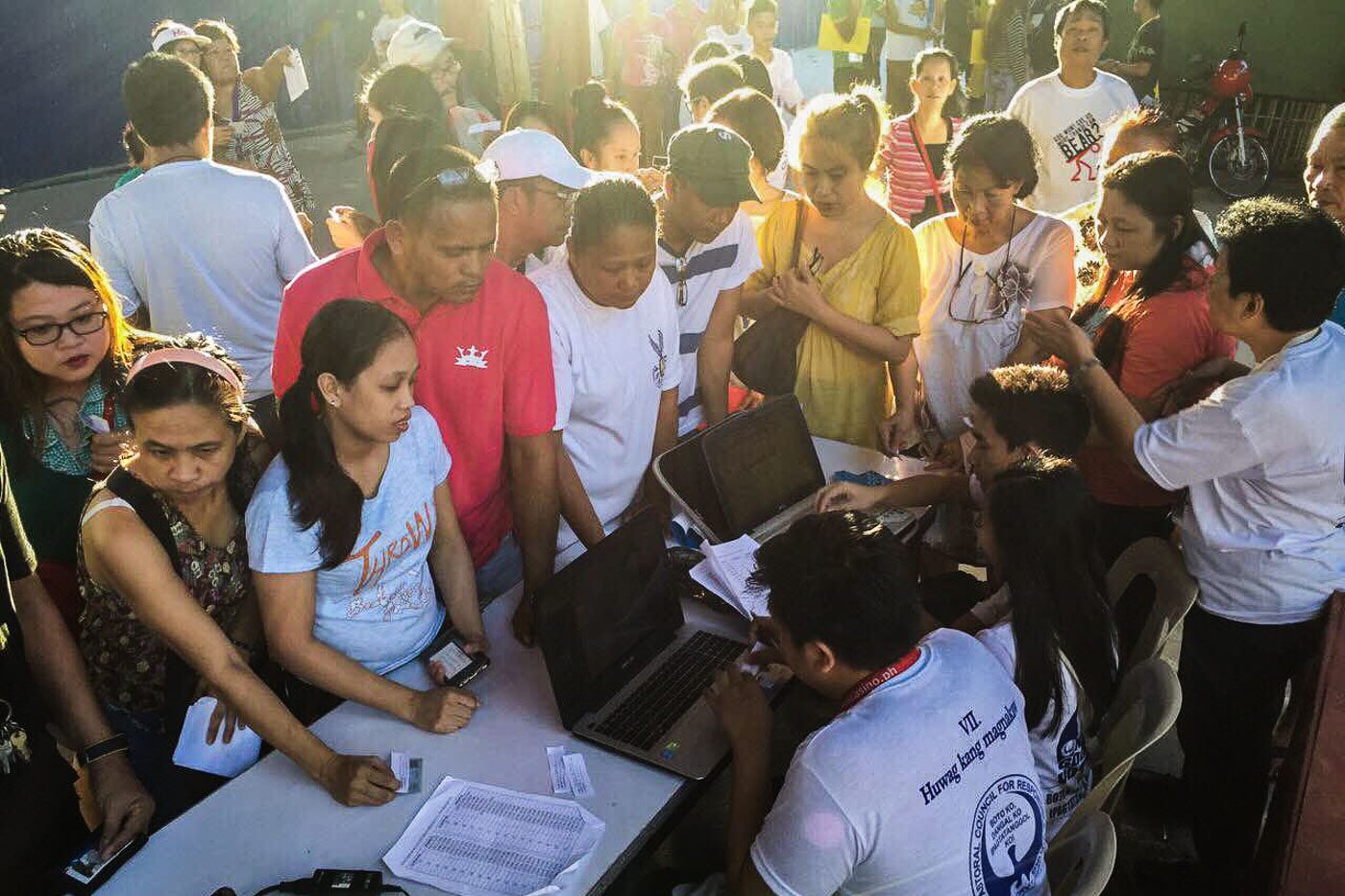SUMMARY
This is AI generated summarization, which may have errors. For context, always refer to the full article.

MANILA, Philippines – With a month to go before election day on May 13, 76% of Filipinos are aware of the party-list system, according to a Pulse Asia Research, Incorporated survey released on Friday, May 3.
The level of awareness recorded during the April 10 to 14 survey is slightly higher than in March, when 74% of the respondents said they have heard, read, or watched something about the system.
Awareness is highest among respondents in Metro Manila (88%), followed by the Balance of Luzon (82%), and Mindanao (75%). It is lowest in Visayas where only 57% of voters are aware of the party-list system.
The survey results also showed that of the 134 party-list groups vying for seats in the House of Representatives, 13 would get more than 2% of the total votes cast for the party-list elections if the elections were held during the survey period.
“This means that each of these 13 party-list groups would get one seat in the House of Representatives in the first round of seat allocation described by the Supreme Court in its resolution dated 17 February 2017,” Pulse Asia president Ronald Holmes said in a statement.
These 13 party-list groups are:
- Bayan Muna – 7.94%
- Ako Bicol political party (AKO Bicol) – 6.65%
- Magkakasama sa Sakahan, Kaunlaran (Magsasaka) – 5.32%
- Anti-Crime and Terrorism Community Involvement and Support, Inc. (ACT-CIS) – 4.67%
- Association of Philippine Electric Cooperatives (APEC) – 4.11%
- Agricultural Sector Alliance of the Philippines (AGAP) – 3.55%
- Citizens’ Battle Against Corruption (CIBAC) – 3.12%
- Coalition of Senior Citizens in the Philippines, Inc (Senior Citizens) – 2.92%
- Anak Mindanao (Amin) – 2.83%
- Probinsyano Ako – 2.64%
- Ang National Coalition of Indigenous Peoples Action Na! Inc (ANAC-IP) – 2.44%
- Alyansa ng mga Mamamayang Probinsiyano (Ang Probinsiyano) – 2.24%
- Cooperative NATCCP Network – 2.07%
“Following the procedure for allocating the maximum number of 59 seats for party-list representatives that is described in said [Commission on Elections] resolution, 4 party-list groups each obtain 3 seats in the Lower House, the maximum number of seats that any group can win in the party-list elections. These groups are Bayan Muna, Ako Bicol, Magsasaka, and ACT-CIS,” Holmes said.
Bayan Muna also led other party-list groups in the previous survey held in March. Gabriela Women’s Party (Gabriela) was second Bayan Muna in the March survey, but was ranked 32nd in the latest survey.
In 2016, the Commission on Elections proclaimed 46 groups as winners in the party-list elections. Their nominees occupied 59 seats in the House of Representatives.
Issues and controversies during the survey period include the killing of 14 farmers in Negros Oriental, the continuing tension in the West Philippine Sea, the start of the overseas absentee voting, rotational power outages in Luzon, and the Supreme Court’s (SC) fact finding probe into alleged inclusion of judges in the Philippine Drug Enforcement Agency’s narco list.
Other issues include the SC’s order for the Solicitor General to submit drug war documents, the signing of a law dividing Palawan into 3 provinces, President Rodrigo Duterte’s reaction to a Philippine Center for Investigatative Journalism report concerning his family’s wealth, Duterte’s order to review government contracts for “onerous” provisions, Presidential threat of a revolutionary government, and agricultural damage of over P5 billion due to El Niño.
It was also in April when the Solicitor General decided against authorizing a settlement that would allow for the distribution to Martial Law victims $13.75 million to raised from the sale of 4 paintings illegal obtained by wife of former dictator and former first lady Imelda Marcos.
The same month also saw controversy over the viral video, titled “Totoong Narco List,” linking presidential son Paolo Duterte, as well as other relatives, to illegal drugs.
The pollster said level of awareness ranged from 57% to 88% across geographic areas and from 72% to 93% across different socio-economic classes. Awareness was recorded to be higher in Metro Manila and the rest of Luzon compared to Visayas while the “best-off” socio-economic classes ABC were more aware than classes D and E.
The survey used face-to-face interviews with 1,800 adult respondents. It has an error margin of ± 2.3% at 95% confidence level, while subnational estimates for the geographic areas covered in the survey have the following error margins at 95% confidence level: ± 6.8% for Metro Manila, ± 3.5% for the rest of Luzon, ± 5.1 % for Visayas and ± 4.8% for Mindanao.
Holmes said “Pulse Asia Research’s pool of academic fellows takes full responsibility for the design and conduct of the survey, as well as for analyses it makes based on the survey data. In keeping with our academic nature, no religious, political, economic, or partisa n group influenced any of these processes.”
“Pulse Asia Research undertakes Pulso ng Bayan pre-election surveys on its own without any party singularly commissioning the research effort,” he added. – Rappler.com
Add a comment
How does this make you feel?
There are no comments yet. Add your comment to start the conversation.